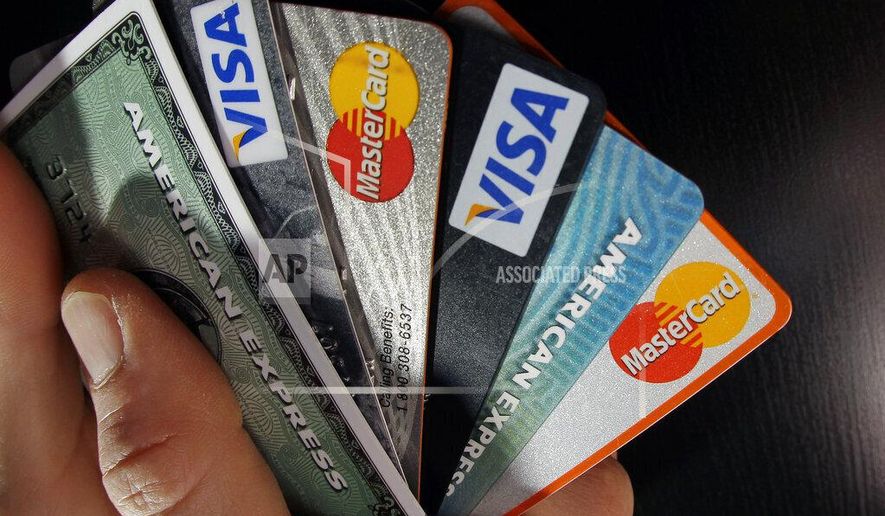President Biden’s administration proposed new regulations Wednesday capping fees that credit card companies can charge for most late payments to $8.
The Consumer Financial Protection Bureau said it could save individuals $12 billion annually by closing a loophole letting credit card companies charge as much as $41 in late payment fees.
“Over a decade ago, Congress banned excessive credit card late fees, but companies have exploited a regulatory loophole that has allowed them to escape scrutiny for charging an otherwise illegal junk fee,” said CFPB Director Rohit Chopra. “Today’s proposed rule seeks to save families billions of dollars and ensure the credit card market is fair and competitive.”
A 2009 law passed by Congress already limits the amount of money that credit card companies can charge as punishment for late payments. According to Mr. Chopra, the law includes a provision letting companies charge consumers an additional sum for processing late payments.
Under that guise, credit card companies have been allowed to charge consumers as much as $41 for late fees. The CFPB estimates the $41 sum is “five times greater” than the actual cost of collecting and processing late payments.
“We worry that credit card companies are actually hoping that consumers are a day or two late so that they can cash in on fees,” said Mr. Chopra.
The new CFPB regulation would cap the fee that credit card companies can charge for late payments at $8. It would also prevent those fees from rising automatically because of inflation every year and stipulate that a late fee can’t be more than 25% of the debt’s minimum payment.
Consumer watchdogs praised the decision, saying the loophole had let credit card companies “profit from consumers living paycheck to paycheck.”
“The CFPB’s crackdown on these exploitative charges will redirect billions from the pockets of big banks to consumers’ wallets and our economy,” said Liz Zelnick, director of Economic Security & Corporate Power.
The CFPB announcement coincided with a meeting Mr. Biden was set to host Tuesday at the White House with the Presidential Competition Council. The group is composed of business leaders and consumer protection advocates.
The White House is requesting Congress pass legislation limiting hidden and unexpected fees companies can charge consumers. Administration officials want the legislation to target four areas: including fees charged for online ticket sales to concerts and sporting events, airline fees for families sitting together on flights, early termination fees for phone and internet services, and surprise fees for resort and destination travel.
“These fees can be incredibly frustrating for typical Americans who have to travel or who are seeking to just engage in practical ways in our economy, like accessing internet services — they cost consumers billions of dollars a year, they make it harder for people to comparison shop,” said Brian Deese, director of the White House’s National Economic Council. “But they also reduce competition and make it more difficult for innovators and new businesses to break into markets and offer better services at lower prices.”
Financial institutions and business groups have yet to weigh in publicly on the CFPB’s proposed regulations or the White House’s legislative push. Both are likely to draw political and legal challenges.
The CFPB is already locked in a legal struggle with Republicans over its funding mechanism. The agency is funded by the Federal Reserve, which GOP lawmakers say is unconstitutional since it puts the CFPB beyond congressional purview.
A U.S. Circuit court has sided with Republicans on the matter, but the White House is appealing to the Supreme Court.
“There’s always been from the very beginning clouds of legal uncertainty around the CFPB,” said Adam White, a senior fellow at the American Enterprise Institute and co-director of George Mason University’s Gray Center for the Study of the Administrative State. “The Biden administration is clearly very keen to get this in front of the justices.”
• Dave Boyer contributed to this story.
• Haris Alic can be reached at halic@washingtontimes.com.




Please read our comment policy before commenting.